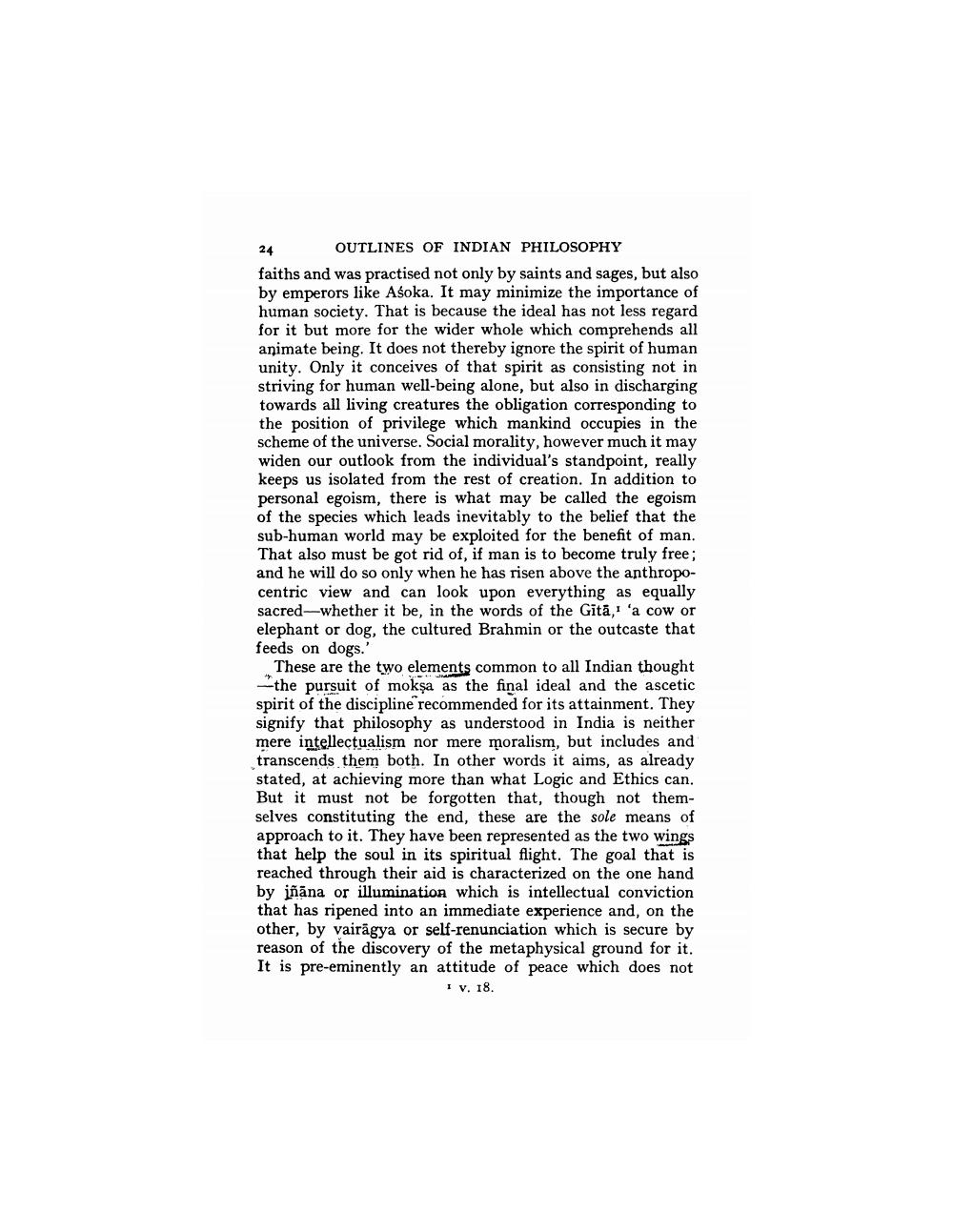________________
24 OUTLINES OF INDIAN PHILOSOPHY faiths and was practised not only by saints and sages, but also by emperors like Asoka. It may minimize the importance of human society. That is because the ideal has not less regard for it but more for the wider whole which comprehends all animate being. It does not thereby ignore the spirit of human unity. Only it conceives of that spirit as consisting not in striving for human well-being alone, but also in discharging towards all living creatures the obligation corresponding to the position of privilege which mankind occupies in the scheme of the universe. Social morality, however much it may widen our outlook from the individual's standpoint, really keeps us isolated from the rest of creation. In addition to personal egoism, there is what may be called the egoism of the species which leads inevitably to the belief that the sub-human world may be exploited for the benefit of man. That also must be got rid of, if man is to become truly free; and he will do so only when he has risen above the anthropocentric view and can look upon everything as equally sacred-whether it be, in the words of the Gītā,' 'a cow or elephant or dog, the cultured Brahmin or the outcaste that feeds on dogs.'
These are the two elements common to all Indian thought --the pursuit of mokṣa as the final ideal and the ascetic spirit of the discipline recommended for its attainment. They signify that philosophy as understood in India is neither mere intellectualism nor mere moralism, but includes and transcends them both. In other words it aims, as already stated, at achieving more than what Logic and Ethics can. But it must not be forgotten that, though not themselves constituting the end, these are the sole means of approach to it. They have been represented as the two wings that help the soul in its spiritual flight. The goal that is reached through their aid is characterized on the one hand by jñāna or illumination which is intellectual conviction that has ripened into an immediate experience and, on the other, by vairāgya or self-renunciation which is secure by reason of the discovery of the metaphysical ground for it. It is pre-eminently an attitude of peace which does not
I v. 18.




